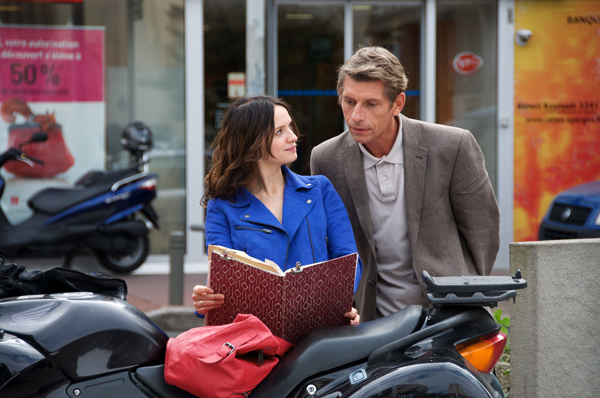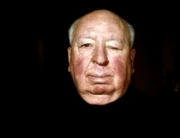
Sara Forestier and Jacques Gamblin in THE NAMES OF LOVE (Photo: Music Box Films)
Directed by Michel Leclerc
Produced by Caroline Adrien, Antoine Rein & Fabrice Goldstein
Written by Leclerc & Baya Kasmi
Released by Music Box Films
French with English subtitles
France. 102 min. Rated R
With Jacques Gamblin, Sara Forestier, Carole Franck, Zinedine Soualem, Michèle Moretti & Jacques Boudet
French director Michael Leclerc’s romantic comedy follows an unlikely couple trying to make a relationship work despite glaring differences. It has a light, facile touch that almost masks its essential superficiality. For that, Leclerc and co-writer Baya Kasmi must thank their two stars, who enliven their stock parts far more than they deserve. Sara Forestier won the Best Actress César (the French Oscar equivalent) for her brash performance as wide-eyed Baya Benmahmoud, a radical left-wing French-Algerian free spirit who has no moral compunctions about bedding down right-wing “fascists,” as she labels them, in order to facilitate their conversion to her political point of view. Baya’s romantic and sexual lives are kept separate until she meets Arthur Martin, a middle-of-the-road ornithologist, played with marvelous understatement by Jacques Gamblin. Forestier and Gamblin make a terrifically engaging couple by preventing Baya and Arthur from turning into caricatures. Her liberal-whore-with-a-heart-of-gold and his stuffy-conservative-scientist are, as Forestier and Gamblin savvily play them,
realistic if willfully oddball characters.
Being French, The Names of Love effortlessly weaves politics into its comic framework, resulting in the movie’s most perceptively funny moments. In one scene, Baya inconsolably sobs because she voted for Jacques Chirac for president, obviously the lesser of two evils pitted against xenophobic nationalist Jean-Marie Le Pen. Later, she inadvertently votes for the current president, Nicolas Sarkozy, instead of the left-wing choice, Ségolène Royal, by mistake. Perennial presidential loser Lionel Jospin (whom Arthur voted for, which he thinks proves his liberal bona fides) shows up at their apartment in an obvious nod to the Marshall McLuhan cameo in Annie Hall.
Leclerc has clearly learned his comic lessons from Woody Allen, who presides over the movie’s breezily anarchic spirit. Family histories for both characters are cleverly interwoven: we see Arthur’s parents and his own youth in black and white, and her family in grainy, color newsreel footage, mirroring their past—his parents’ in upper-class France, her father’s in Arabic Algeria. In his narration, Arthur admits he can’t remember his industrialist father as a younger man, so in flashbacks, we see him still as an old man, making for funny moments in his parents’ courtship scenes. Arthur’s Jewish guilt rears its head when he stops mentioning his family’s Holocaust tragedy after realizing he used it as a pickup line in high school to reel in empathetic girls, and his discussing his ongoing female failures with his on-screen teenage self also harks back to Woody’s young alter egos in both Love and Death and Annie Hall.
Baya’s childhood sexual abuse by a piano teacher is fodder for some of the dark humor, and gets the most laughs when, with an adolescent Baya and her family gathered in front of the TV, her parents channel-surf to avoid mention of sexual abuse on various programs. They are satisfied only when they find a channel where there is discussion of war crimes, a much less reprehensible subject to them. Also tossed into the comic stew are vignettes of how Arthur’s parents proudly used newfangled contraptions, like Beta tapes and laserdiscs, believing they were always ahead of the technology curve.
Much of this, however, is peripheral to the themes of national identity and racism that are the movie’s subtext. The script shoehorns them in alongside the humor, even when they don’t arise organically from the material. Failing to integrate such serious issues within the farcical elements makes for quite a schizophrenic comedy that the appealing Forestier and Gamblin somehow manage to keep on track.






Leave A Comment